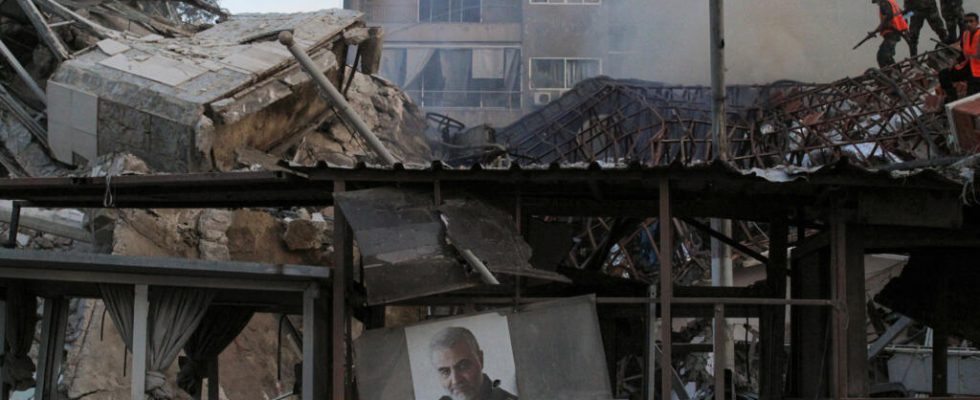Since the strike attributed to Israel which destroyed the Iranian embassy in Damascus last week and killed seven figures of the Revolutionary Guards, tension has continued to grow in the region. Jordan, Iraq and Egypt condemn the attack, and Iran has promised a response. But where and when? Interview with Hasni Abidi, director of the center for studies and research on the Arab and Mediterranean world (Cermam) in Geneva.
3 mins
RFI: The Revolutionary Guards have already announced twice, since the attack on its embassy in Damascus, that Israel would be punished. But the response has still not taken place. For what ?
Hasni Abidi : The Iranians have always accustomed us to a certain calculation, both of time and space. Their restraint is legendary. They choose the places, they also choose the time. Generally, the responses are proportional to the loss. We saw this with the assassination of General Qassem Soleimani in Iraq. The Iranians then gave the green light to all militias in the region, particularly in Iraq, to respond.
And then there is the question of impunity. If the Iranians do not react at the level of the loss suffered in Damascusthe credibility of the Revolutionary Guard of theIran is engaged. And nothing would stop Israelnext time, to attack targets directly on Iranian soil.
Furthermore, this expectation is already a response from Iran. It provokes a very significant American commitment. The United States is calling on all its allies in the region to intervene and ask the Iranians to work toward de-escalation. There is also this tension that reigns in Israel. It is already a front opened today by the Iranians without the latter having started the response.
US intelligence predicted that the Iranian response would take the form of sending a missile to Israel directly from Iran. Is the United States afraid of a regionalization of the conflict? ?
The Americans, who have worked since October 7 to contain the consequences of the attack and the war in Gaza, see that this strategy is failing. Other fronts have been lit, notably with the Houthis in Yemen, with the Iraqi militias, with Hezbollah and today with Iran.
Their fear is whether Iran will respond directly, or rather subcontract this response to its relays in the region? There is also one last option, and it is the most dangerous. It is a combined response: the Iranians would strike Israel directly and their relays would act simultaneously in the region. This would be considered a first in the Middle East conflict.
Read alsoIran’s Supreme Leader threatens Israel after attack on its consulate in Syria
Joe Biden, President of the United States, recalled “ unwavering commitment » of his country towards Israel. However, less than a week ago, he expressed his disagreement with the military strategy of Israeli Prime Minister Benjamin Netanyahu in Gaza… What do you think of these statements? ?
The Americans want to warn the Iranians that touching Israel also affects American interests. But it was the Iranians who started by saying that this attack on the Iranian embassy in Damascus was carried out thanks to American support and that the Americans were co-responsible for this attack.
Washington wants to insist that President Joe Biden’s criticism of the management of the war in Gaza does not mean that in the event of an Iranian response, American support for Israel will be weakened. And that is an important element both for Israel, but also for Washington which, through this message, hopes that the Israeli cabinet will move forward in the negotiations and in the talks aimed at finding a humanitarian truce in the Gaza Strip. .
